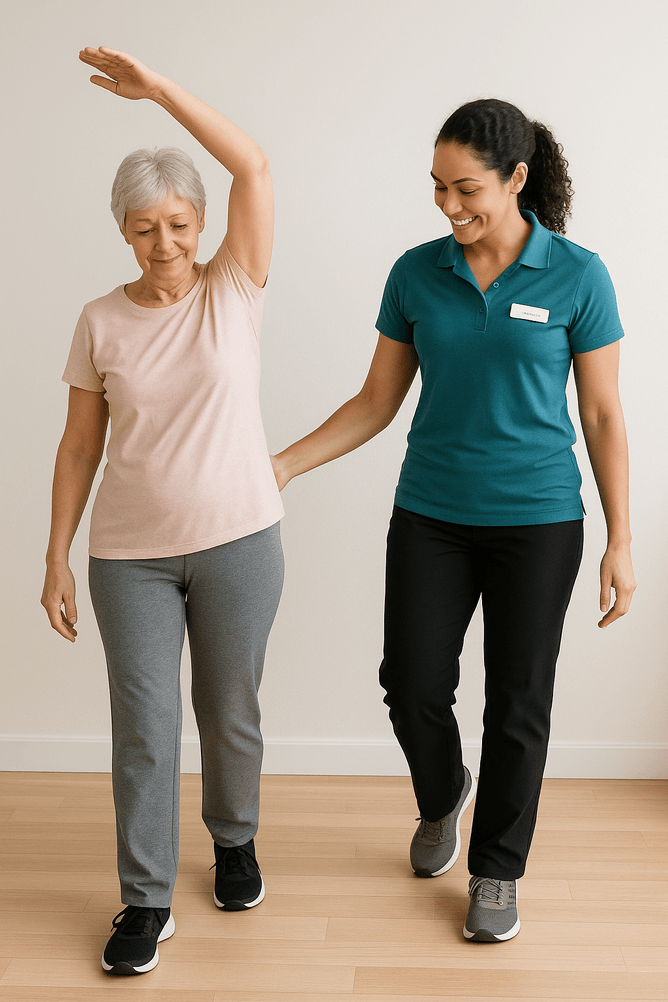Parkinson’s disease affects people differently each day. For many, having a simple, predictable routine can provide comfort, reduce anxiety, and help manage symptoms. Daily structure, combined with professional support like Exercise Physiology, can make a big difference in quality of life.
Start the Day Right
Having a calm, consistent morning routine helps set a positive tone. Waking at the same time each day, followed by a warm cup of tea and a few minutes of deep breathing, can ease morning stiffness and reduce stress. Light stretching or gentle movement in the morning, especially under the guidance of an Exercise Physiologist, can assist with joint mobility and prepare the body for the day ahead.
Exercise Physiology supports people with Parkinson’s to maintain independence and function. A personalised exercise plan can improve posture, balance, and reduce the risk of falls, especially in the early part of the day when energy levels are often higher.
Mealtimes That Nourish and Connect
Eating well is essential, but some people with Parkinson’s may face challenges like changes in appetite or difficulty swallowing. Sticking to regular meal times provides a sense of stability. Meals rich in fruits, vegetables, lean proteins, and whole grains support energy levels and brain health.
Our Dietitians often work closely with clients and their families to create plans that meet their unique needs. Soft, easy-to-chew meals and plenty of hydration are key. Sharing meals with others, whether family, friends, or support workers, also adds a meaningful social element to the day.
Meaningful Movement Matters
Movement isn’t just about exercise; it’s about staying engaged. Hobbies like gardening, painting, or puzzles can stimulate the mind and provide purpose. Including regular physical activity is a cornerstone of living well with Parkinson’s.
Exercise Physiology plays an important role in maintaining strength, flexibility, and coordination. Structured routines might include walking, balance training, or group sessions tailored for Parkinson’s. Local programs and community-based exercise groups are also great ways to stay active and connected.
Even short walks outdoors can be refreshing, offering a change of scenery and a mood boost. The goal isn’t perfection, it’s consistency.
Winding Down the Day
Evenings are a great time to slow down. Activities like reading, listening to music, or taking a warm shower can signal to the body that it’s time to rest. Keeping bedtime consistent supports better sleep, something many people with Parkinson’s struggle with.
Sleep hygiene, mindfulness, and quiet routines all play a role. A calm evening helps reduce overnight restlessness and supports overall well-being.
Support That Grows With You
Building a daily routine can support both the physical and emotional needs of people living with Parkinson’s. Whether it's structured meals, personalised Exercise Physiology plans, or meaningful hobbies, small steps each day can lead to big outcomes.
At Holistic Strength, we’re here to support you every step of the way. If you or someone you care for is living with Parkinson’s, reach out to see how our team can help build a routine that works for you.
